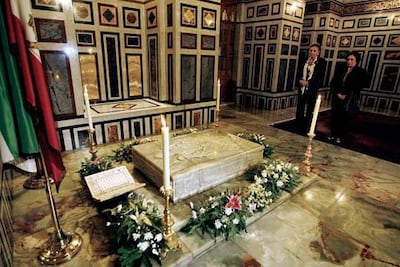In recent months, there have been different moves towards de-escalation across the Middle East, the most recent of which saw Saudi Arabia and Iran attempt a new modus vivendi in their diplomatic relations. One might ask if these moves, preceded by others involving Turkey and Egypt, for example, amounts to a kind of momentum – and if that momentum may include, as some have suggested, Egypt and Iran. Some recent reports hint at a possible shift in relations between the two countries – but how significant would such a shift be? And historically, what did Egyptian-Iranian relations actually look like in the first place?
While Egypt and Iran have lacked political normalisation for decades, the two countries are among the most profoundly embedded civilisations in the Middle East. Of course, as substantial powers, over thousands of years the relationship between the two naturally has naturally seen episodes of antagonism, and other episodes of amity. The rise and fall of various empires, along with western colonial enterprises, preceded modern dynamics for contemporary formal Egyptian-Iranian relations.
Iran sent its first official representative to Cairo towards the end of the 19th century, which was eventually upgraded to a formal delegation following Egyptian independence from the British in 1922. It’s an interesting bit of history recorded by Egyptian scholar Ahmed Morsy in his work on Egyptian-Iranian relations: Iran was the only eastern country to have a delegation in Cairo at the time, while Egypt was the first Arab country to have a formal diplomatic mission in Tehran following the ascendance of Reza Khan in 1925. By 1939, both countries had full mutual diplomatic representation status.

There were other signs of positive engagement in the early to mid-20th century, including intermarriage between the royal families of the two countries (regarded as incredibly significant at the time), and strong ties between the Egyptian government of Anwar Sadat and the Iranian administration of Reza Shah in the 1970s. On the religious level, an Iranian Shiite scholar went to Cairo to found Dar Al Taqrib, an association aimed at bringing Sunni and Shiite Muslims together – recalling that Iran is predominantly (though not exclusively) Shiite, and Egyptian Muslims are nearly all Sunni Muslims. The emissary was sent to Cairo in recognition of Egypt’s pre-eminent position in the Muslim world for Islamic learning via Al Azhar, and there was a reciprocal show of good faith from within Al Azhar which eventually led to the religious verdict by Mahmud Shaltut, the then head of the Azhari establishment and one of the founders of Dar Al Taqrib, that recognised the validity of following twelver Shiite jurisprudence.
But it is fair to say that over the course of the past 50 years, the relationship between Tehran and Cairo has been less than positive or co-operative. In general, it has been either negative or, in more recent years, more or less absent altogether. Many times over the course of my career, I’ve been asked by western interlocutors a variation of the question, “How does Cairo perceive Iranian moves,” – and invariably, there is surprise when it is noted that it generally hasn’t prioritised any interest on Iran, despite Cairo’s strong relationships with different Gulf states. That’s actually a positive improvement on where the Egyptian-Iranian relationship has been towards the end of the 20th century.
Egypt under Gamal Abdel Nasser meant Cairo was pro-Arab nationalism, opposed to Israel and in a geopolitical alignment that was certainly not close to the West, and sought to upend the status quo – all of that was contrary to Tehran’s orientation during the same period, particularly under Reza Shah, meaning that diplomatic relations between the two countries were severed from 1960 to 1970. The brief interlude of good relations under Mr Sadat from 1970 onwards was interrupted once Ruhollah Khomeini established Iran’s “Islamic Republic” in 1979; the political orientation of Iran shifted 180 degrees.
At the same time, Cairo signed a peace treaty with the Israelis, which Tehran condemned, and gave refuge to Reza Shah, who had fled Mr Khomeini’s revolution, infuriating the new regime in Tehran. When Mr Sadat was assassinated, Tehran celebrated his killing, commemorating it with a mural and renaming a street after the assassin. Egypt backed Iraq against Iran during the 1980s war, and full diplomatic ties have remained in abeyance since.
There have been some blips in the relationship since 1980, particularly during 2012 and 2013, when Iran sent an ambassador to Cairo, and then Egyptian president Mohammed Morsi visited Tehran. But generally, Iran and Egypt were hostile to each other, until the hostility gave way to quiet suspicion or, alternatively, at least a reciprocally reticent stance.
For the first time in a long while, given regional trends, there may be enough political will to progress towards a normalisation of diplomatic relations between the two countries; although Egypt has said little while Iran is more publicly enthusiastic. It would certainly fit into a wider momentum of diplomatic moves aimed at political de-escalation and dialogue across the Middle East.
But it is unclear what might be gained from such a rapprochement – after such an extensive period of non-engagement, it is difficult to tell. Nevertheless, it may well end up being the case that Cairo and Tehran decide that little is to be gained by the continuation of such a lack of relations.


